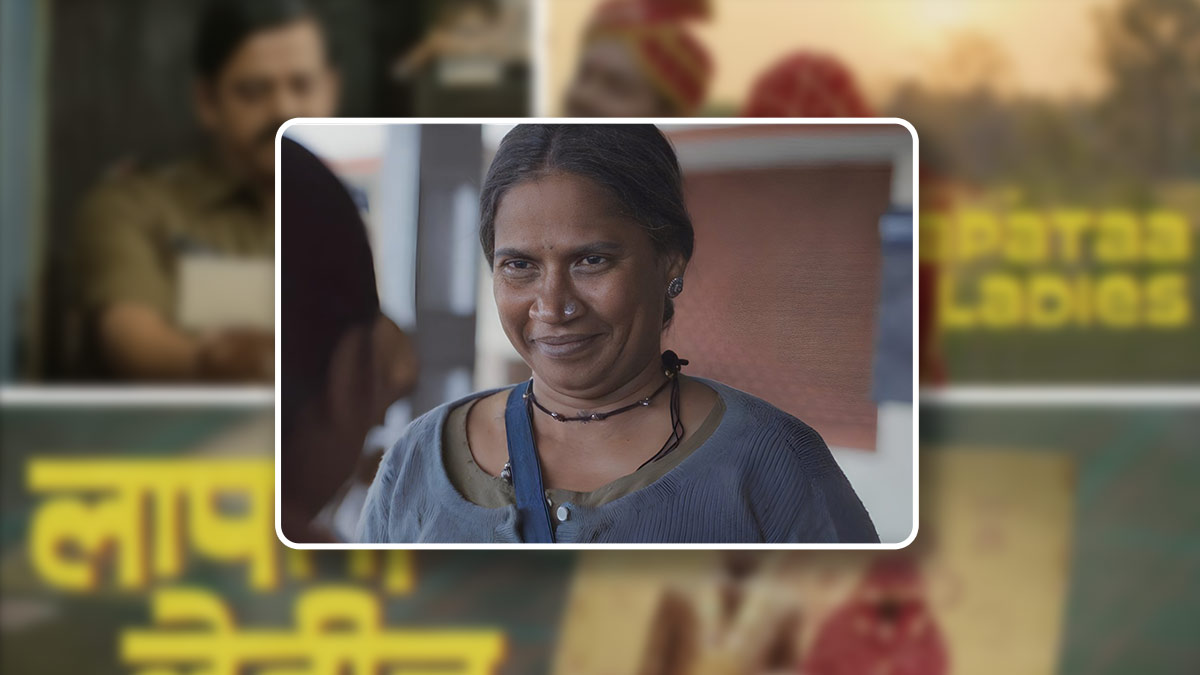
I had been eagerly awaiting ‘Laapataa Ladies,’ and when I finally watched it, the movie lived up to all the positive hype surrounding it. It is truly remarkable. Despite its simple, rural backdrop, the film packs a punch with strong, empowering messages. The actors brilliantly brought to life ordinary characters from rural India whose rigid mindsets underwent a transformative change. From a corrupt police officer seeking bribes to an upright law enforcer saving a woman from domestic abuse, a devoted housewife realising the value of financial independence, a domestic violence survivor standing on her own feet, and an educated woman defying norms to pursue her aspirations, each character exemplified how even the most flawed human beings have the potential for positive change.

While every character in 'Laapataa Ladies' left an impactful impression, the one who inspired me the most was Manju Maai. When first introduced, she came across as an ordinary woman grappling with poverty, earning a living by selling tea and fritters at a railway station. Her initial portrayal was of a blunt, no-nonsense woman who valued only those capable of hard work. When the hopeful Phool Kumari approached Manju Maai, pinning her faith on her husband's eventual return, she faced criticism for her naivete. However, as the story progressed, Manju Maai underwent a remarkable transformation that made her truly inspirational.

"My husband and son would get drunk and beat me up. And then they would say, 'A man who loves you has the right to hit you. One day, I exercised my right as well."

As the film delved deeper, it unveiled a vulnerable yet empowering side of Manju Maai. When she allowed Phool to stay with her and was seen smoking on the sofa, she revealed dark secrets from her past.
Manju Maai was not always alone, she once had a family with a husband and son. However, both were unemployed drunkards who added to her burdens instead of sharing them. Despite being the sole breadwinner, Manju Maai faced physical abuse from the very men who should have supported her. To justify their heinous acts, they perpetuated the sickening mindset that "a man who loves has the right to hit you."
But Manju Maai refused to be a willing victim. Fed up with the relentless oppression, she finally exercised her right to fight back. In a powerful act of defiance, she mustered the courage to kick her abusive husband and son out of her own home, shattering the cycle of violence. Her resistance against injustice marked the first step towards reclaiming her dignity.

Since breaking free from her abusive past, Manju Maai has been living alone, earning an honest living through sheer grit. When Phool innocently asks if being alone isn't difficult, Manju Maai's response is both profound and empowering "Being happy on your own is the toughest thing, Phool. But yes, once you master it, no one can bother you."
This statement struck a deep chord, resonating with the fears and anxieties many single women face. As someone who has vowed to remain single, the prospect of solitude is daunting, what if I cannot make ends meet? What if loneliness becomes overbearing? What if I cannot find happiness in my own company? But Manju Maai's words provided reassurance, normalising the challenges of being alone while highlighting the ultimate reward unshakable independence and inner peace.

Manju Maai's commentary on female autonomy is a rallying cry that resonates across generations. Her bold assertion that "women can farm and cook...give birth and raise children" and the profound realisation that "women don't really need men at all" shatters societal myths about feminine dependence. This truth liberates women from the shackles of perceived helplessness, empowering them to embrace self-reliance wholeheartedly. If a woman then chooses marriage, it becomes a conscious decision for companionship, not a necessity for survival.

Furthermore, Manju Maai's incisive remark on the "con of a respectable girl" lays bare the oppressive societal norms that masquerade as virtues. By denying women the basic rights to autonomy, freedom and independence under the guise of "respectability," the system has systematically suppressed female potential for centuries. Her empowering influence on Phool, who breaks free by joining Maai's stall and relishing her first earned income, is a triumphant moment.

Perhaps the most striking aspect is that such powerful feminist ideology emerges from an unlikely source, a humble tea stall owner with no formal education, shaped solely by the crucible of lived trauma. This poignant paradox reveals that true empowerment transcends academic pedigree, stemming instead from an unbiased, critical perspective on the world. Regrettably, modern institutions like schools, media and films often stifle this independent thinking, homogenising minds to serve establishmentarian narratives.
Manju Maai's raw, uncompromising wisdom is a wake-up call for all women to unshackle themselves from subservient mindsets, redefine "respectability" on their own terms, and boldly carve out their own paths to fulfilment, unburdened by antiquated prejudices.
Herzindagi.com is Jagran New Media's gender and lifestyle vertical, catering to women of all age groups, helping them remain updated, on-trend and aware. To improve our performance and understand our readers' interests better, we have created this poll. This will take 2 minutes of your time, do help us out with this link.
Don't Miss: Mothers Day 2024: Inspiring Lessons From Bollywood CineMAA
For more such stories, stay tuned to HerZindagi
Our aim is to provide accurate, safe and expert verified information through our articles and social media handles. The remedies, advice and tips mentioned here are for general information only. Please consult your expert before trying any kind of health, beauty, life hacks or astrology related tips. For any feedback or complaint, contact us at [email protected].